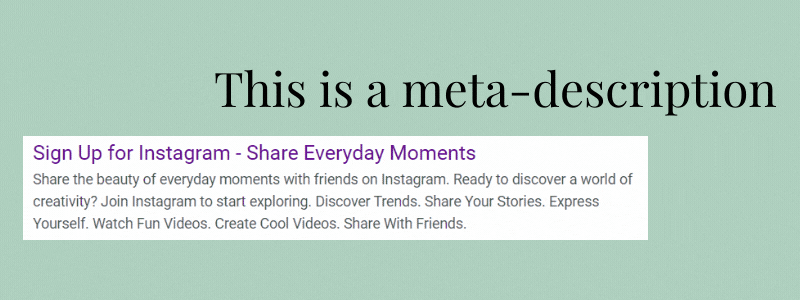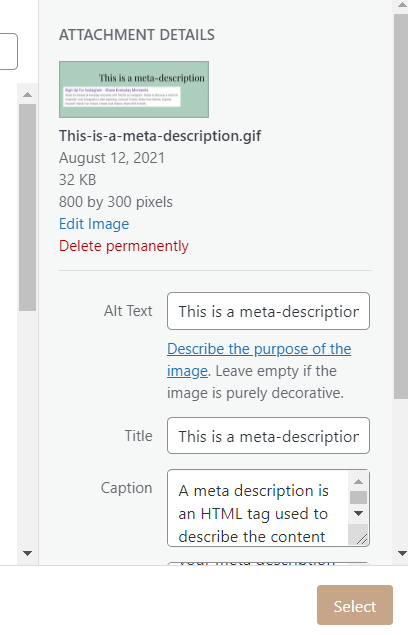How to Get Google to Like You

Creating SEO-friendly content is a big part of what I do in developing my client’s websites, and there is a boatload to understand in order to make the most of it. So, what better place to start than with the persnickety Google machine itself? Keep reading for 7 easy ways to get Google to like you!
I mean… to like your *content.*
01. Make sure your website is faster than the rest of them.
Or at least fast enough to promote a positive user experience. Google doesn’t want you to keep your intended audience waiting for long. Page load speed is vital to optimal SEO. What is “optimal”? Ideally, anything less than a 1-2 second load time is optimal.
02. Build “trust” with quality backlinks.
A backlink = website A linking to website B. If other websites are linking to yours, Google takes that as a nice, helpful ‘oh, so people like her!’ and consider your website to be more deserving of appearing in your search results. To learn more about backlinking and specifically how it helps your SEO, click here.
03. Don’t ignore your meta descriptions.
You know, that little snippet of info below the link of a search result. Don’t forget about it! This is the often forgotten step child of SEO. Your meta descriptions should do everything in its power to drive a user to make the decision to click your site. Focus on persuading the searcher to click, while still describing the webpage in a way that makes sense.

Hint: make sure you’re getting those keywords in while still being specific! Don’t just throw random keywords in there — meta descriptions should be formatted as concise, complete sentences. Also, you’ll need a different meta description for each page of your website, because each page has a different function. Your meta description for your home page will be different than the description for your services page, because you want your viewers to know exactly what they’re clicking on. *IMPORTANT* – Google hates copy-and-paste descriptions.
04. Change the file names of your images.
Contrary to popular belief, images are very important to Google. After all, an entire section of the search results is dedicated to images! Pay as much attention to the keywords used to describe your image in the back end as you do to everything else on your site. Changing the file names to relevant keywords helps Google find you!

05. Customize your URLs.
Google doesn’t want to send anyone to a website link that ends in /43yioyuOYUQIO-3I2OP-wyd. Not cute. Or SEO-friendly. When creating a new website page, make sure you’re being mindful of what the link is. Google likes easy-to-read links with no numbers or unnecessary characters. SEO is allll about user experience, and a confusing link is the fastest way to turn off a new site viewer (and Miss G).
06. Content > SEO tactics.
If you only implement one tip from this post, please let it be this one. I’m begging you. If you’re more focused on getting Google to like you than creating content with your audience in mind, then, um… we have a problem. Putting out content that your viewers are going to love & find beneficial should be your main goal. The whole point of ranking on Google is to drive people to your high-quality, engaging content, in hopes that they’ll hire you or purchase your product. Right? Don’t lose sight of why we care so much about Google!
07. Rich Snippets BABYY.
This might be a little above and beyond what some people are capable of doing. BUT. It’s worth mentioning for those of you tech savvy people. There is a handy-dandy plugin that allows you to add Rich Snippets to your web pages. What are Rich Snippets. THIS link will learn ya something better than I can spell out for you here. But the Sparknotes version is this (from the link above):
“Rich snippets are the extra bits of information that can appear on a search listing below the meta title or description.
For example, the star ratings for reviews, the cooking times and calories on recipe results, or times and locations on events listings.
These additional bits of information appear because of structured data used in the code on the page that is being listed. Google uses rich snippets to enhance the SERP listing and provide key information directly on the SERP page.”
So basically a juicy, hyper-specific meltdown of what your page or post on your website is about. And it couldn’t be more important to get this set up for your business. On. Every. Page.
Want to boost your website’s SEO? Get in touch here for a free consult. No strings attached.






